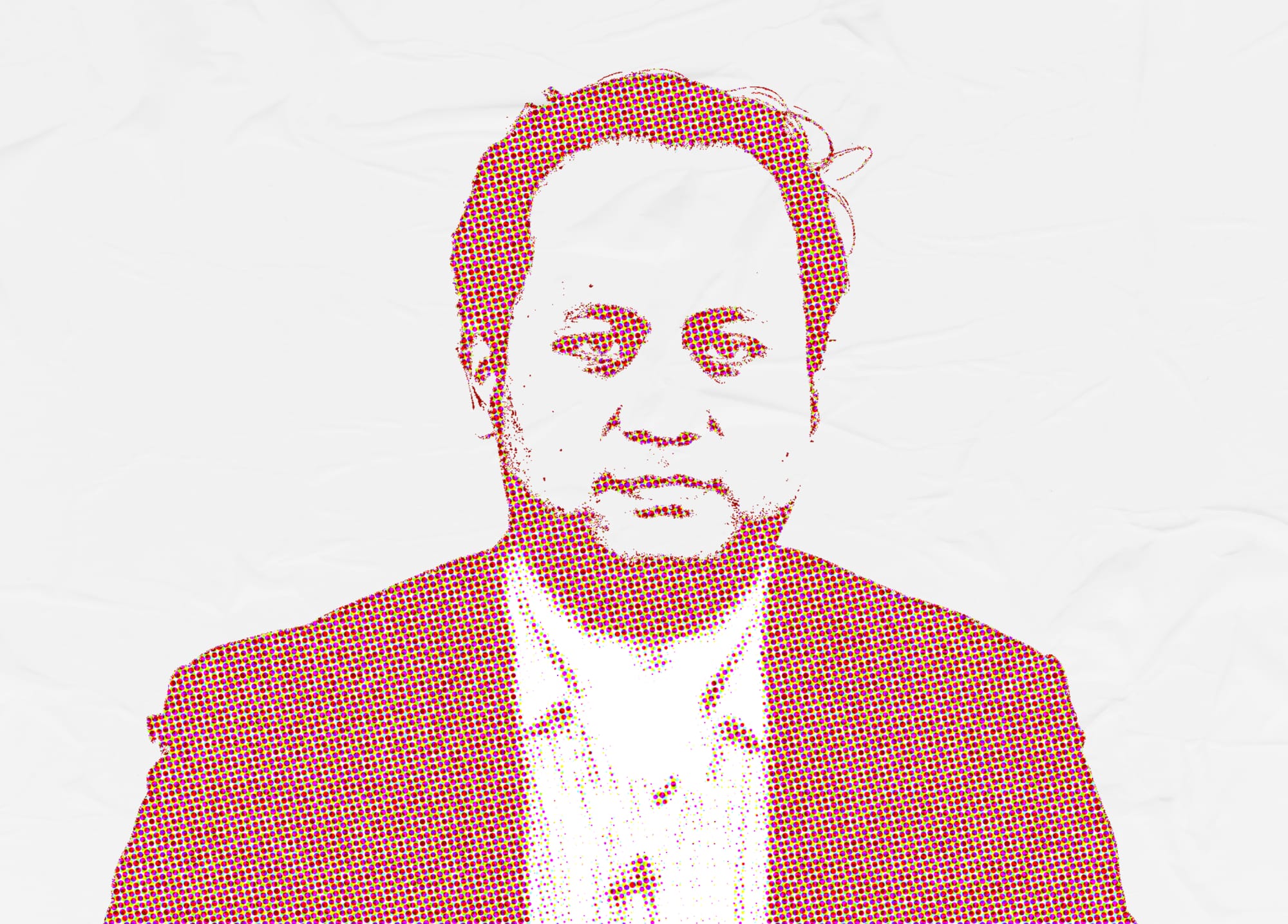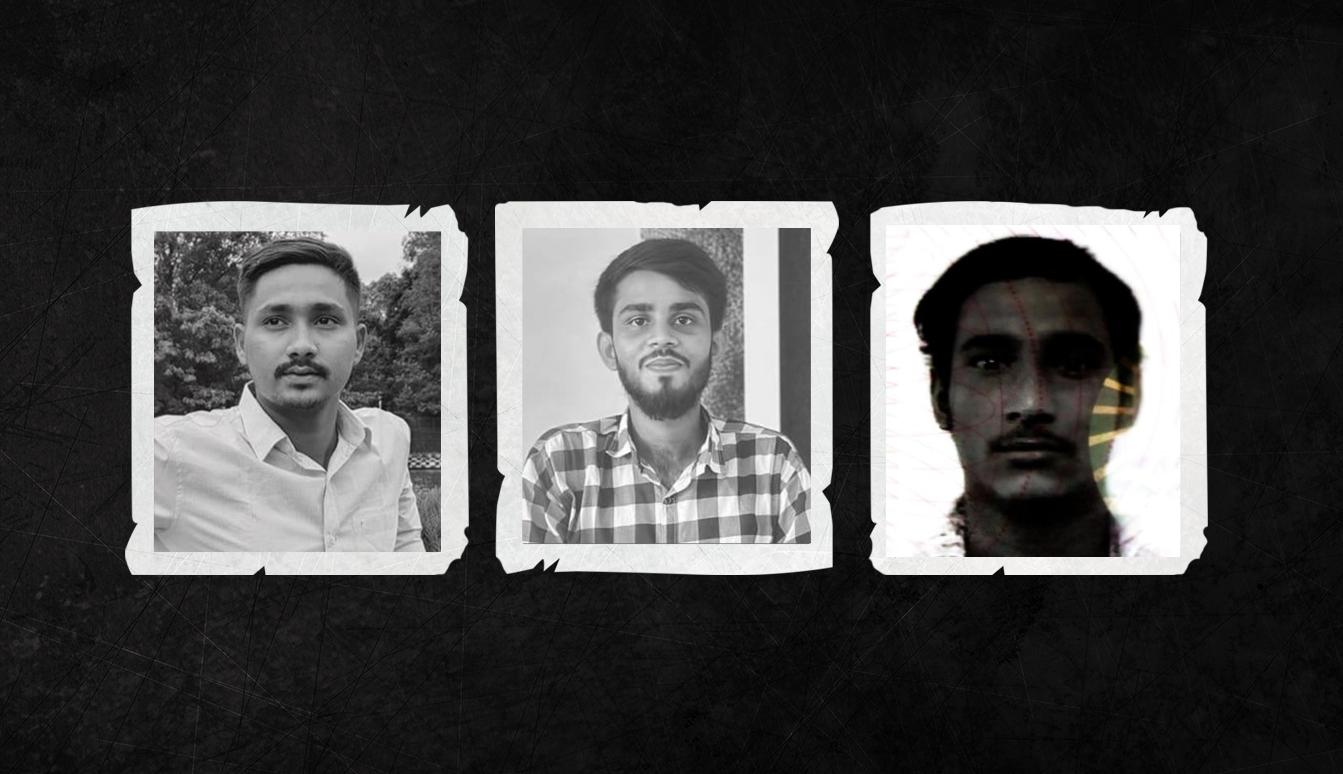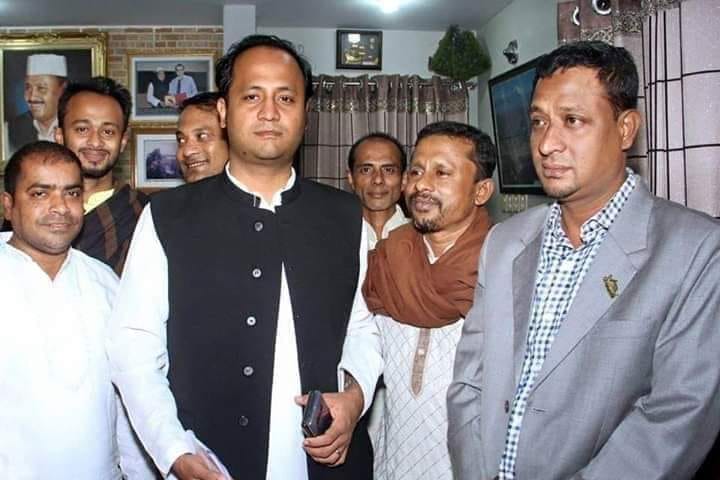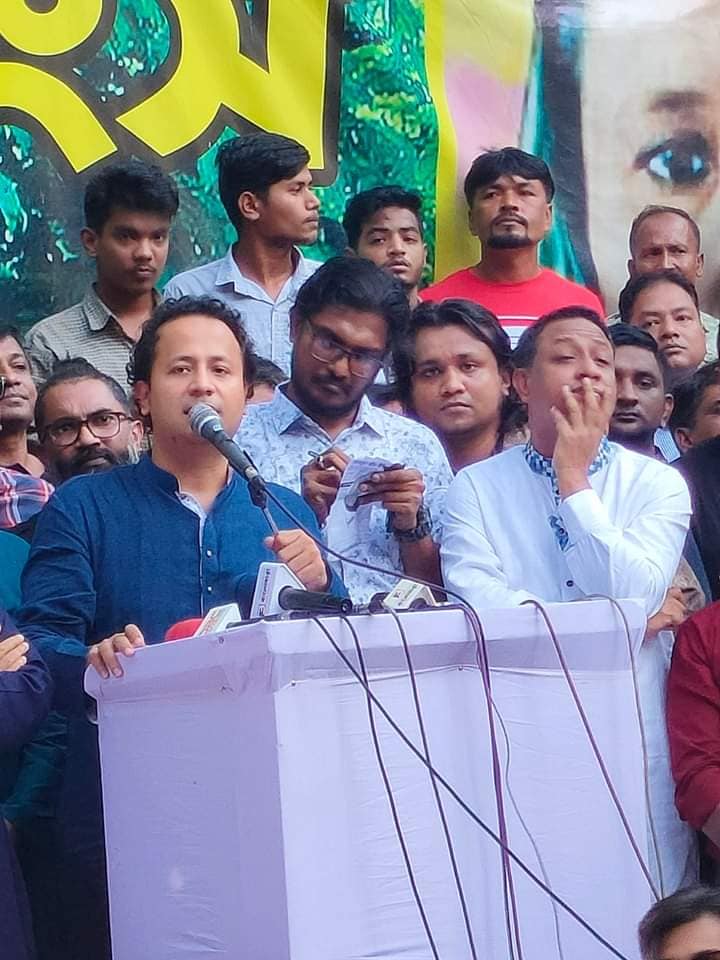Education Minister Was Supposed to Protect Students. His Men Killed Them.
Bangladesh’s prime minister appointed Mohibul Hasan Chowdhury Nowfel to negotiate with the protesting students, but the education minister — responsible for the well-being of the nation’s students — was part of the problem.

On the morning of July 16th, Chattogram woke to what seemed like an ordinary day. By the afternoon, however, the city morphed into the scene of a large-scale tragedy. A peaceful gathering of student protesters was met with gunfire from ruling Awami League and Chhatra League cadres, leaving three students dead, according to numerous local reports citing eyewitnesses.
Luckily for the students under assault, reinforcements arrived from nearby schools and colleges. And before long, the ruling party assailants loyal to Prime Minister Sheikh Hasina found themselves in retreat.
As they attempted to escape the wrath of thousands of students, one of the cadres sent a video message to his patrons. “Bhai, I am clinging to this building here. Please save me. Bhai, Babar Bhai, where are you? Rony Bhai, where are you? Please save me, Bhai,” he pleaded, according to a video recording reviewed by Netra News.

The men he pleaded with for help were Helal Akbar Chowdhury Babar and Nurul Azim Rony, two of the staunchest grassroots associates of Mohibul Hasan Chowdhury Nowfel, the country’s education minister and a Member of Parliament from a Chattogram constituency, a traditional stronghold of his family, where he leads one of the two fiercest factions of the local ruling party.
In his role as Minister of Education, Nowfel is entrusted with the welfare and well-being of the country’s millions of school-going pupils. But the gangsters he harbours unleashed one of the most savage assaults on student protesters during the ongoing unrest. That violence in the early days of the movement played a critical role in inflaming tensions, helping amplify a nascent agitation into large-scale civil disorder plaguing Bangladesh today.
Following the violent event in Chattogram and his accompanying blistering public statements against students, Nowfel would be among the last persons the protesters would trust. Yet, he was one of the three officials picked by the prime minister to reconcile with the protesters. This hitherto little-known episode explains why protesters strenuously refused to engage in dialogue with the government — the very one they had sought greater opportunities to serve through public jobs.
Violent associates
The confrontation in Chattogram, a bustling trade city, was not inevitable.
Social media posts made by Nurul Azim Rony — one of the two Nowfel allies the Chattogram cadre beseeched for help — show that a group of men under his command had taken a position at the nearby Sholoshahar Railway Station with large sticks to “thwart” the Anti-Discrimination Students Movement.
জয় বাংলা, লাখো শহীদের রক্তস্নাত স্বাধীনতা। জয় বাংলা, মুক্ত আকাশের লাল সবুজের পতাকা। জয় বাংলা, হার না মানা বাঙালির বজ্র কণ্ঠ সদম্ভ ঘোষণা।
Posted by Nurul Azim Rony on Tuesday, July 16, 2024
Soon after his public pronouncement, Rony’s followers, along with other Jubo and Awami League men, swooped on the protesters, opening fire at around 3 pm as the students tried to mobilise.
Four men were seen pulling the trigger. At least one of them was identified by both independent and pro-regime news outlets as N H Mithu, a Chhatra League activist and follower of Rony.
Rony, unapologetic about his role in the attack, took to social media to claim victory. “The pre-scheduled rally of the self-proclaimed razakars has successfully been foiled on Chattogram’s soil,” he declared in a Facebook post a little more than an hour after the deadly clash.
Razakars, now a pejorative term, were local collaborators of the Pakistani military during Bangladesh’s Liberation War in 1971. The Awami League party, which played a significant historical role in the war, often uses the term to disparage young students.
Rather than denying or downplaying his involvement in the violence, Rony seemed keen to take credit. “This movement has become a movement of Jamaat-Shibir. I am here to resist this,” he told Ajker Patrika, referring to the opposition parties that the government squarely blamed for the civil unrest.
The newspaper identified two more individuals — Md Firoz, a controversial Jubo League man, and Md Delwar, a Swecchashebok League leader — as firing bullets at protesters from the nearby Sholoshahar Station area. Both had participated in a rally organised by the local Awami League wing led by Helal Akbar Chowdhury Babar, another ally of the education minister.
Citing eyewitness accounts and video analyses, Ajker Patrika and The Daily Star, an independent newspaper, reported that Babar personally supplied the weapons used in the attacks against the students. A video reviewed by The Daily Star showed weapons being brought out of a car registered to Gazi Jafor Ullah, a former Jubo League leader close to Babar. Netra News analysed numerous social media posts suggesting a long-standing relationship between Babar and Ullah, dating back at least to 2016.
Like Babar, Ullah is also a follower of Education Minister Nowfel, according to published news stories, photographs, and political leaflets obtained by Netra News.

During the attack, Babar was seen leading a group of party cadres at the Sholoshahar Station area. In a brief interview with Somoy TV, he labelled the protesters as razakars and opposition activists, “who must be resisted.”
These well-publicised statements by Babar and Rony echo what their patron, Minister Nowfel, said in a public Facebook post on 15 July: “You razakar, leave Bangladesh now!” he told the protesters.
The godfather
Both Babar and Rony have extensive criminal records and serve as key enforcers for the education minister in Chattogram.

Babar, a key suspect in the 1996 murder of opposition activist Azad Ali Khan, enjoyed impunity until the Bangladesh Nationalist Party returned to power in 2001. He was acquitted in 2014 after witnesses chose not to testify, presumably out of fear. Babar was also implicated in a double murder case in 2013 but was granted bail a year after his arrest.
Netra News has obtained around a hundred photographs of Nowfel and Babar attending political and social gatherings together, as well as dozens of photographs showing Nowfel visiting Babar’s home.
Nurul Azim Rony has also been implicated in violent crimes. He was named in extortion and illegal firearms cases and was sentenced to spend two years behind bars, a punishment overturned in 2021. Rony is considered the de facto leader of the pro-Nowfel wing of the Chhatra League in the city and surrounding areas.
A sham negotiation
The ongoing civil unrest in Bangladesh was still a fledgling student protest until Sheikh Hasina made an explosive gaffe: she compared the protesters as the progeny of razakars. The students were campaigning against a 30% quota reserved in highly coveted public jobs for descendants of registered veterans of Bangladesh’s independence war, and according to Hasina, that made them traitors.
Hasina’s comments incited anger among students across university campuses and dormitories, and was seen as a greenlight for her followers to begin disparaging them. Members of the Chhatra League loyal to her went on to clash with the protesters with the help of police, leaving scores dead. She then sought to ease tensions by addressing the nation in a primetime sombre appearance, but her speech did little to assuage the unrest, partly because she failed to mention the tragic deaths of many students.
She also invoked the incident in Chattogram in her speech. However, instead of addressing the killings of the three students by her party members, she referred to the counteroffensive by students who chased away the aggressors led by Nurul Azam Rony and Helal Akbar Chowdhury Babar.
As pressure continued to mount from students, Sheikh Hasina assigned Rony and Babar’s patron, Mohibul Hasan Chowdhury Nowfel, to find a way to reconcile with them. However, Nowfel, a member of a three-person government envoy, was hardly a good-faith negotiator. Besides making numerous disparaging remarks about the protesters, he made a social media post that, in retrospect, served as a prelude to escalating police violence against protesters.
“Considering the existing situation in the country, the law and order forces will take special measures, so all the students of the country are specially requested to stay at home for their own safety,” his ministry warned in a not-so-subtle Facebook post on July 18th.
Nowfel wasn’t bluffing.
Soon after, the security forces’ handling of the protests turned exceedingly ferocious, with the death toll rising rapidly. Whereas only seven people died on July 16th and 17th combined, according to a Netra News count, 38 people were killed on the 18th and 105 more the day after.
As protest leaders refused to respond to the government’s call for dialogue amid the rising atrocities, the local press reported a meeting on July 20th between three protest leaders and government envoys, including Nowfel. Other student leaders, including Nahid Islam, who was later detained, told Netra News that at least one of the three leaders was abducted and forced into negotiation.
Coerced or not, the three leaders made a serious demand: “prosecute the Chhatra League goons and the government officials who were involved in inciting the violent attacks against students.” But this plea was made to a man whose underlings had just orchestrated one of the most violent bouts of attacks on students and was more responsible than most for their suffering. They were, essentially, asking the minister to cut his own wings.●